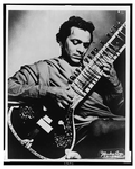
I was busy writing away in a notebook last night when I suddenly realized that I was sleeping. In the dream, I had been working on a commentary on Montaigne’s essay Of Cannibals. The problem with discussing dreams, of course, is that it ofen leads one into an embarrassing consideration of one’s own inner life which tends to be self-stroking and not particularly revealing — or rather, it reveals some self-absorbed aspects of one’s own personality even as one is sure that it is revealing some great inner-truth, like John Marcher’s beast in the jungle. Or even worse, it is like taking one of those IQ tests that occassionally pop-up in one’s browser and determining from it that one is quite intelligent.
When I woke up in the morning, there was no commentary written out at my bedside, or even prepared in my head. I don’t even remember what I was trying to say about Of Cannibals. This contrasts starkly with the experience of sleep coding, which occassionally overcomes software developers who have been working too hard on a particular problem, and in some circles is even considered to be a mark of particularly virtuous coding.
I am convinced, as many programmers are, that sleep coding really works — that is, that in sleep, programmers actually solve problems from their waking hours. I have often spent hours on a particularly insidious problem only to find, after a good night’s sleep, that I am able to quickly fix the problem the next morning. And it seems to be something different from simply taking a break. Walking away from a problem for a few hours, while it can be helpful in reducing stress, has never had the revelatory effect that sleeping has had. I’ve even come to the point that when I consider a problem to be particularly difficult, instead of trying to solve the problem right away, I plan on learning as much as I can about it in order to hand it over to my dream-coder to solve in the night. I think of this as an occult offshoring.
It is quite possible, of course, that the experience of dreaming code and the phenomenon of having code solved in one’s sleep are two entirely different things. The second can be true even if the first is essentially meaningless, a phantom caused by neurons misfiring in our sleep. And this is, in some cases, the solution to the mind-body problem. The theory goes that when awake, we are merely observers of a mechanistic process with epiphenomenal experiences that do not actually affect what is going on in the world. We are merely passive observers, even though we think we are actually participating and making decisions — though this implies a rather inelegant duplication of entities in the world. Why should it be that I can code in my sleep, and also observe myself coding in my sleep through my dreams, but these two things are not the same thing?
And also, is this something that only happens for computer programmers? Is it the case that our bodies can perform high cognitive functions without us, but only for certain types of tasks? I don’t recall ever waking up in college with an essay fully formed in my mind. Then again, we are told that Coleridge woke up from a dream with Kubla Kahn fully formed in his mind, and only after being interrupted by a visitor and taking a break from it, did he lose it again.
